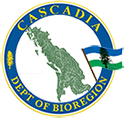KULL [kul] — adjective. Meaning: Hard (in substance); solid; hard to do; tough; difficult. Origin: From a Chinookan particle q’ul ‘strong’; q’ul-q’ul ‘strong’, ‘hard’, ‘too difficult’. A word used to describe making something “hyas kull” (tight; fast), or changing the state of something such as “mamook kull” (to harden;…...
Your Chinook Wawa Word of the Day: Lemooto
LEMOOTO [le-MOO’-to] or [lam’-MU-to] — noun. Meaning: Sheep; mutton. Origin: French, les moutons, “sheep” Sometimes spelled as lemoto or limoto, it refers to sheep, and naturally all things related to them, such as “man lemooto” (ram), “klootchman lemooto” (ewe), “tenas lemooto” (lamb), and “lemooto house” (fold, sheepfold). The word was…...
The Sound of the Yurok language (Numbers, Sentences & Phrases)
Yurok (also Chillula, Mita, Pekwan, Rikwa, Sugon, Weitspek, and Weitspekan) is an Algic language. It is the traditional language of the Yurok of Del Norte County and Humboldt County on the northwest coast of California. The name Yurok comes from the Karuk ‘yuruk’, literally meaning ‘downriver’. The Yurok traditional name…...
The Sound of the Salish Language (Numbers, Greetings, Phrases & Story)
The Salish or Séliš language, also known as Kalispel–Pend d’oreille, Kalispel–Spokane–Flathead, or, to distinguish it from the Salish language family to which it gave its name, Montana Salish, is a Salishan language with dialects spoken (as of 2005) by about 64 elders of the Flathead Nation in north central Montana…...
The Sound of the Tlingit language (Numbers, Greetings, Phrases & Story)
The Tlingit language is spoken by the Tlingit people in Southeast Alaska from Yakutat (Yaakwdáat, Yàkwdât) south to Portland Canal, and from British Columbia into south-central Yukon Territory between Tagish and Kaska northward. The Tlingit language is distantly related to Eyak and the Athabaskan languages as a branch of the…...
The Sound of the Nootka / Nuu-chah-nulth language (Numbers, Sentences, Phrases & Story)
Nuu-chah-nulth, also known as Nootka, is Wakashan language historically spoken on the west coast of Vancouver Island, from Barkley Sound to Quatsino Sound in British Columbia by the Nuu-chah-nulth peoples. Nuu-chah-nulth is a Southern Wakashan language related to Nitinaht and Makah. It is the first language of the indigenous peoples…...
The Sound of the Haida language (Numbers, Greetings, Sentences & Phrases)
Haida (X̱aat Kíl, X̱aadas Kíl, X̱aayda Kil, Xaad kil) is the language of the Haida people, spoken in the Haida Gwaii archipelago off the coast of British Columbia and on Prince of Wales Island in Alaska. An endangered language, Haida currently has 24 native speakers, though revitalization efforts are underway.…...
The Sound of the Chinook Jargon language (Numbers, Greetings & Story)
Chinook Wawa (also known as Chinuk Wawa or Chinook Jargon, and sometimes Chinook Lelang) is a nearly extinct pidgin trade language that bordered on being a creole language which served as a true lingua franca of the Cascadia bioregion for several hundred years. Partly related to, but not the same…...






